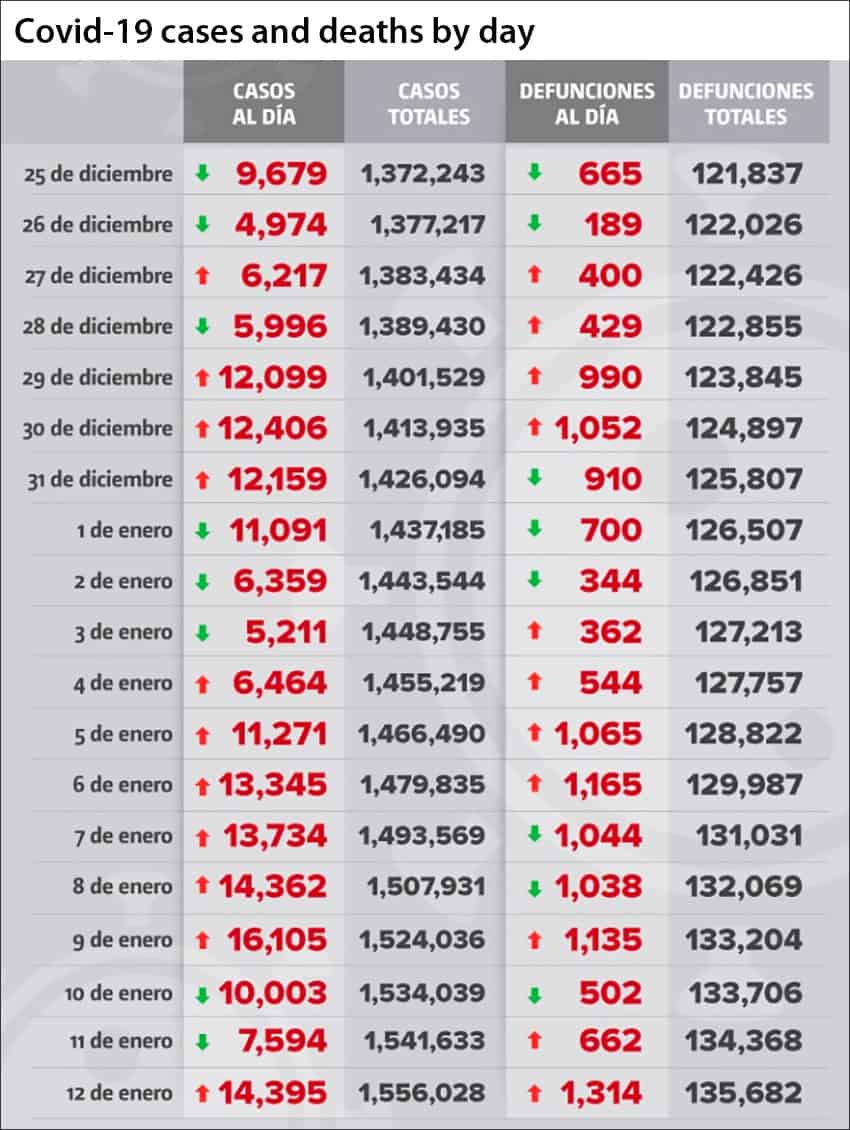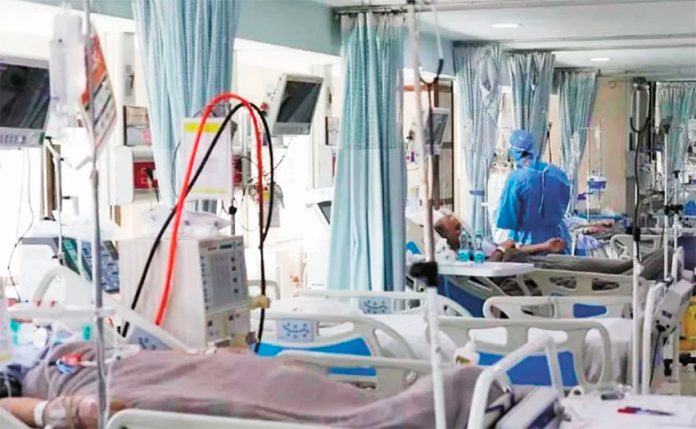The number of coronavirus patients in hospitals in the Valley of México metropolitan area is just 53 short of the maximum predicted by the Mexico City government, while the national Covid-19 death toll hit a new single-day high on Tuesday.
Mayor Claudia Sheinbaum said in late December that government modeling showed that 9,512 beds could be occupied by coronavirus patients in January in a worst case scenario.
As of Tuesday night, there were 9,459 patients in hospitals in the metropolitan area, which includes the 16 boroughs of Mexico City and many municipalities in neighboring México state. Of that number, 7,205 are in general care beds and 2,254 are in intensive care beds.
There are 6,912 patients hospitalized in Mexico City itself, according to a government report published Tuesday, yielding an occupancy rate of 87%. Federal data currently shows a 91.5% occupancy rate for general care beds in the capital and an 87% rate for beds with ventilators.
A total of 929 beds in Mexico City hospitals remain available to coronavirus patients, of which 225 have access to ventilators.
Authorities in the capital have added just over 2,000 additional beds to the health system over the past four weeks, increasing overall capacity by 38%. Another 300 beds will be installed in hospitals by the end of January, Sheinbaum told a press conference Tuesday.
The mayor emphasized that increasing hospital capacity doesn’t just involve installing new beds but also ensuring that there are enough medications and healthcare workers to treat the patients that occupy them.
Authorities in Mexico City and México state are aiming to have a total of 10,500 Covid-designated beds by next week but it remains to be seen if their efforts to increase hospital capacity in the Valley of México area will be sufficient in the coming weeks. The coronavirus is spreading more quickly now than at any other time in the pandemic, and a group of Mexican and United States academics predicted last month that the outbreak in the capital would overwhelm its health system this month.
Some patients have already had difficulty finding a hospital bed, and in early December the federal Health Ministry advised people with Covid-19 symptoms to call 911 to confirm the availability of beds before seeking treatment to avoid facilities that are already full. The situation has worsened considerably since then.
A daily average of 10,827 new cases was reported during the first 12 days of January, a 7% increase compared to December, which was the worst month of the pandemic in terms of new infections with more than 312,000. The single-day record for case numbers was broken on four consecutive days last week, peaking at 16,105 on Saturday.
The Health Ministry reported 14,395 new cases on Tuesday – the second highest single-day total of the pandemic – pushing Mexico’s accumulated tally to 1.55 million.

Mexico City leads the country for confirmed cases with almost 375,000 followed by México state with just over 158,000.
Health authorities also reported a record 1,314 Covid-19 deaths on Tuesday, a figure that exceeds the previous single-day high of 1,165 by 149, or 13%. Mexico’s official death toll now stands at 135,682, the fourth highest total in the world.
Hospital occupancy across the national health system is 58% for general care beds and 49% for beds with ventilators. Federal data also shows that only 92,879 people – mainly health workers – have received a dose of the Pfizer/BioNTech Covid-19 vaccine since the vaccination program began three weeks ago, but that number should now increase more rapidly as almost 440,000 doses arrived Tuesday and were to be distributed to all 32 states.
A wider rollout of the vaccine is urgently needed as Mexico contends with a growing coronavirus outbreak largely fueled by gatherings and parties over the Christmas-New Year vacation period and braces for a possible outbreak of the new, more contagious strain of the virus first detected in the United Kingdom in September.
Unlike many countries, Mexico didn’t restrict flights from the U.K. in light of the emergence of the new strain, which is considered up to 70% more transmissible than other strains.
One confirmed case of the new strain and a possible one have already been detected here, the former in Tamaulipas and the latter in Nuevo León.
Nuevo León Health Minister Manuel de la O Cavazos said Tuesday that a man infected with a virus that was 96% similar to the B117 strain had died. Aged in his 60s, the man suffered from diabetes and passed away in a Pemex hospital, the health minister said.
A U.K. citizen confirmed to be infected with the new strain of the virus remains in serious condition in a Tamaulipas hospital. While the new strain of the virus is more contagious than others, health experts say there is no evidence that it causes a more serious Covid-19 illness.
Source: El Universal (sp), Animal Político (sp), El Financiero (sp)
